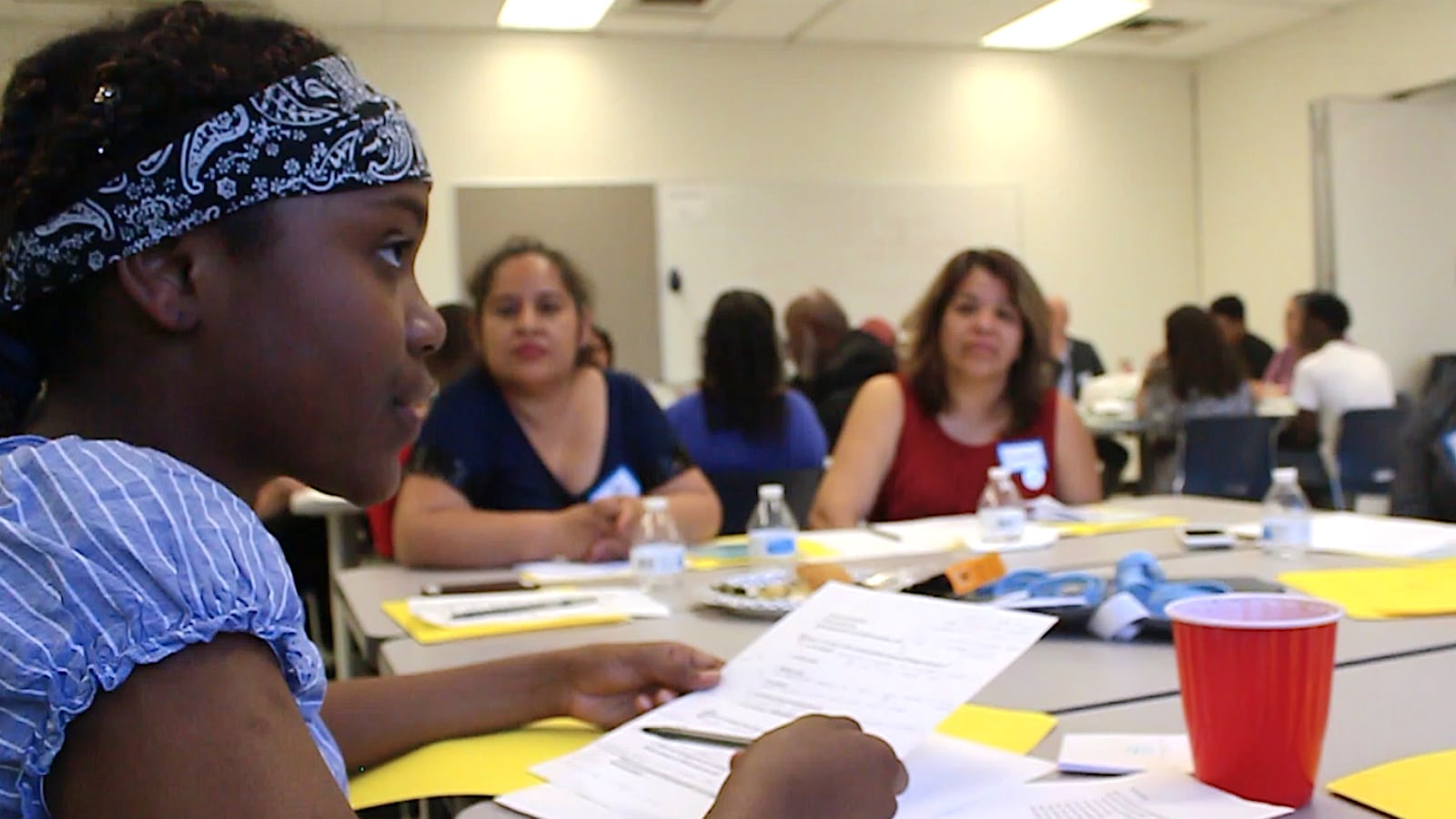Last week, I co-hosted a dinner for 45 parents, educators, students and community members at Walter H. Dyett High School for the Arts in Washington Park. Over some of the best chicken and biscuits I’ve had in my life, I posed this question. The list of responses was long and impassioned, but one answer, in particular, stayed with me long after we all went home.
“There’s a disconnect between the policy makers and the people on the ground. Too often, I have to bring my own chair to the table.”
I get this.
A few weeks ago, I dropped my son off at kindergarten and drove back to my home office to start a new job as bureau chief of Chalkbeat Chicago. Even in a district powered by school choice, landing a spot in a “good” kindergarten felt like a struggle: starting with testing in a hot, crowded room with other nervous parents and kids and ending with 11 waitlists.
It’s one thing to write about school choice as a journalist; it’s another to experience it as a parent.
I’m approaching this job as both. At Chalkbeat Chicago, we plan to cover early childhood education through K-12, which means assessing everything from Mayor Rahm Emanuel’s “diploma mandate” to the highly touted freshman tracking program To & Through to efforts to tamp down the district’s high debt. We will examine decisions made in the boardroom: on spending, school openings and closings, charter authorizations, leadership, and the like. But we’ll also be reporting from classrooms. As a parent, I can attest that you can’t really understand the district’s opportunities and challenges until you spend time talking with educators and seeing kids in school.
And as our dinner guests last week stressed, to get the full picture, you must engage the community, too. To get the Chicago bureau up and running, we plan to launch a Listening Tour that will take us around the city to better understand what’s working in public education and what’s not. We already kicked it off with our dinner at Dyett, which we hosted with the neighborhood schools advocacy group Generation All as part of the Chicago Community Trust #OntheTable2018.
Some questions participants raised in that conversation:
- There are serious questions about who wields the power, from mayoral control of the district to concerns about Local School Councils. LSCs need to be supported, trained by the central office and promoted. Participants asked: Where is the accountability to the public?
- More honesty is needed about how deeply racism shapes schools. Is school funding equitable? What does it mean when some schools have art teachers and librarians, and others don’t? Why does it seem like some neighborhoods have a say in whether they get charter schools—and others don’t?
- We know that an overwhelming number of Chicago children suffer from trauma and stress. But suspensions, expulsions, and discipline have become the norm instead of counseling and kindness.
- Schools used to be the center of community life. That’s why the stakes are so high when schools are slated to close. How can we return to that thinking? How can we invite the community and parents in? How can we develop more community leaders and partnerships that build up neighborhood schools?
- Wanted: better ideas for parent engagement. How do we bring in parents into a child’s educational life?
- The public narrative of Chicago schools is overwhelmingly negative. Let’s figure out exactly what’s working and, first, replicate it. Then celebrate it.
People kept talking, and our list of participants’ questions kept growing—even after the dinner was over, the biscuits were gone and the school was closing for the night. I’m pleased to say, though, that this was just a start. As we host more conversations across Chicago, we pledge to make public what we learn. We also plan to use what we hear to help set our coverage priorities for the year.
Tomorrow, I’ll introduce my first new hire: Adeshina Emmanuel, whose writing has appeared in the New York Times, Ebony, Columbia Journalism Review, the Chicago Reader and Chicago magazine. By the end of May, we’ll start publishing a weekly newsletter that summarizes what you need to know about Chicago schools. It will elevate some of the great reporting that’s already happening here and include our observations as well. Moving into fall, that newsletter will appear with more regularity. By June, we plan to start publishing stories on our site as we move about the city on our Listening Tour.
Getting started, I’m eager to hear from you. Tell us what you think is missing from the conversation about Chicago schools, find out more about our Listening Tour or send us a story idea or just hello: chicago.tips@chalkbeat.org.
Since our dinner, I’ve been thinking a lot about the guest who spoke so passionately about bringing her own chair to the table. At Chalkbeat Chicago, we want to invite everyone into the discussion, from the power brokers to Chicago educators to community members, like her, who feel like they haven’t been heard.
Join us. There are plenty of chairs at our table for everyone.

